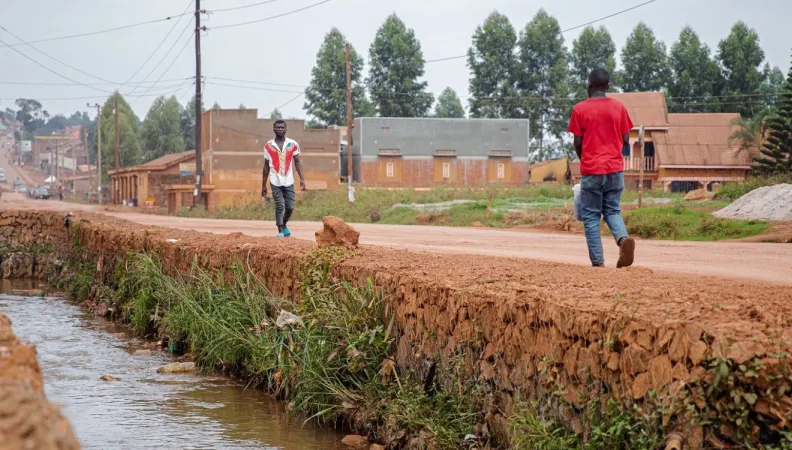Share the page
UGANDA A sustainable and scalable solution to increase financial inclusion of refugees.
Project


-
Project start date
-
Status
Ongoing
-
Project end date
-
-
Project duration
-
5 years
-
AFD financing amount
-
€ 1 108 800
-
Country and region
-
Location
-
Kampala, Nile de l'Ouest
-
Type of financing
-
Beneficiaries
-
Mercy Corps Europe
-
Type of beneficiary
-
CSO
AFD is collaborating with Mercy Corps to improve the financial outcomes and wellbeing of refugees in Uganda, by giving refugees, in Central and West Nile Region of Uganda, access to financial services to increase their income, assets and self-reliance.
Context
Uganda operates one of the most progressive refugee assistance regimes in the world, hosting a total refugee population of over 1.4 million. As the crises drag on, refugees increasingly find themselves establishing homes, businesses and farms in their host communities.
Despite the potential of this market opportunity, financial service providers (FSFs) have not responded effectively, constrained by the cost, complexity and risk of lending to refugees. This lack of financial inclusion has hampered income growth, asset accumulation and the overall resilience of the households concerned.
Description
This project will address the barriers restricting the accessibility and cost-effective utilization of financial services by refugees in Uganda, encompassing urban refugees in Kampala and the periurban and rural areas of the West Nile District.
The project will provide a sustainable, scalable solution to enhance the financial inclusion of refugees through financial and digital literacy, empowering refugees to navigate financial services regulations.
The project is collaborating with five Refugee-Led Organizations and partnering with three Financial Service Providers (FSP) to develop tailored products for refugees. These providers will be equipped with tools to assess the capacities and constraints of refugees, with a particular focus on women.
Furthermore, Kiva.org—a crowdfunding platform—alongside the Kiva Refugee Investment Fund, is extending low-interest capital to the Financial Service Providers to enable these providers to extend loans to refugees under attractive conditions.
Impacts
- Improve the ability of 2000 refugees (plus household members as indirect beneficiaries) to access, use and understand financial services thereby fostering economic empowerment and self-sufficiency within refugee communities.
- By focusing on maximizing the number of women enrolled, the project will develop women’s autonomy in order to build more inclusive, prosperous and equitable communities.
- Improvement in resilience of refugees by using financial inclusion to reduce the use of negative coping mechanisms.
- The project will develop a replicable and scalable model, which has the potential to reach hundreds of thousands of refugees, across multiple geographic areas by providing funding to financial service providers for on lending to refugees and IDPs.


